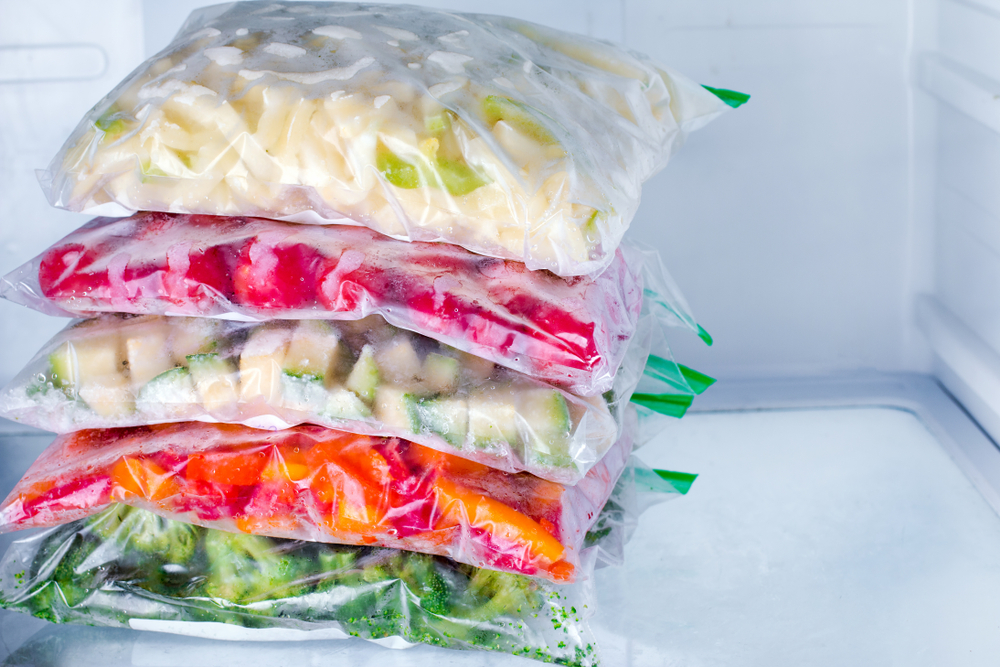
Many shoppers assume that fresh vegetables are always the healthiest choice. But that’s not the whole story. In fact, frozen vegetables can sometimes pack more nutrition than their fresh counterparts. This happens because vegetables are usually frozen soon after harvest, locking in nutrients at their peak. On the other hand, fresh produce may spend days in transit and on store shelves, slowly losing vitamins and minerals. Understanding which frozen vegetables offer the most nutrition can help you make more informed choices for your meals and budget.
Whether you’re trying to eat healthier, save time, or cut down on food waste, knowing which frozen veggies to buy can make a real difference. Here are thirteen frozen vegetables that often deliver more nutrition than their fresh counterparts, along with tips on maximizing the benefits from your freezer aisle finds.
1. Spinach
Frozen spinach is a nutrition powerhouse. Because it’s blanched and flash-frozen right after harvest, it retains more vitamin A, folate, and vitamin K compared to fresh spinach that sits in the fridge for a week. Plus, it’s easy to add to soups, omelets, and smoothies without worrying about wilting leaves.
2. Broccoli
Broccoli is another vegetable that holds onto its nutrients when frozen. Frozen broccoli often has more vitamin C and beta-carotene than fresh broccoli that’s been sitting around. This makes it a smart pick for anyone looking to boost their intake of these essential nutrients.
3. Green Peas
Green peas lose their natural sweetness and nutrients quickly after being picked. Freezing them soon after harvest helps preserve their vitamin C and B vitamins. Frozen peas are also quick to prepare and add a pop of color and nutrition to many dishes.
4. Carrots
Frozen carrots maintain high levels of beta-carotene, which your body converts to vitamin A. Because they’re processed and frozen quickly, you get more nutrition than from fresh carrots that may have been stored for weeks. They’re perfect for stews, stir-fries, and casseroles.
5. Brussels Sprouts
Brussels sprouts can lose nutrients as they age. Frozen Brussels sprouts retain more vitamin C and fiber, making them a convenient and nutritious choice. They’re also easier to prepare, since you don’t have to trim or clean them as much as fresh ones.
6. Edamame
Frozen edamame, or young soybeans, are a protein-rich snack or side dish. Freezing helps preserve their vitamin K and folate content. They’re easy to steam or microwave, making them a simple way to add plant-based protein to your diet.
7. Cauliflower
Frozen cauliflower keeps more vitamin C and antioxidants than fresh cauliflower that sits in the fridge. It’s also convenient for making quick cauliflower rice, mash, or adding to curries. The freezing process helps prevent nutrient loss, making it a great option for your freezer.
8. Mixed Vegetable Blends
Many frozen vegetables come in blends with carrots, peas, corn, and green beans. These mixes are frozen at peak ripeness, so they retain more vitamins and minerals. They’re versatile, budget-friendly, and help reduce food waste since you can use just what you need.
9. Corn
Sweet corn loses its sugar and nutrients quickly after harvest. Frozen corn is processed and frozen at its peak freshness, which preserves its natural sweetness and vitamin C content. It’s perfect for tossing in salads, soups, and casseroles year-round.
10. Kale
Kale is known for its high vitamin K and C content. When frozen, these nutrients are better preserved compared to fresh kale, which can wilt and degrade. Frozen kale is pre-chopped and ready to use, so it’s easy to add to smoothies, soups, or sautés.
11. Green Beans
Green beans can lose texture and nutrients quickly, but freezing halts this process. Frozen green beans maintain more vitamin A and C than fresh beans that have been transported long distances. They’re a simple side dish or addition to stir-fries.
12. Butternut Squash
Frozen butternut squash is peeled, cubed, and ready to cook. It retains more beta-carotene and vitamin C than fresh squash that’s been stored for a while. It’s a convenient way to add fiber and color to your meals without the prep work.
13. Artichoke Hearts
Frozen artichoke hearts are a nutrient-dense pick. They’re rich in fiber, vitamin C, and folate. Freezing locks in these nutrients, while canned versions may contain added salt or preservatives. They work well in dips, pasta dishes, or salads.
How to Get the Most Nutrition from Frozen Vegetables
Frozen vegetables are an easy way to eat healthy on a budget. To get the most nutrition, choose plain varieties without added sauces or salt. Steam or microwave them instead of boiling, which can cause some nutrients to leach out. Frozen vegetables are often just as good—if not better—than fresh, especially when it comes to retaining vitamins and minerals.
What’s your favorite way to use frozen vegetables in your meals? Share your tips in the comments below!
What to Read Next…
- 7 Surprisingly Healthy Frozen Foods That Save Time And Money
- These Are The Top 10 Frozen Food Finds At Any Grocery Store
- 5 Frozen Dinners Nutritionists Often Advise Against
- Get These 5 Frozen Dinners For Your Family To Save Money And Eat Well
- 15 Foods You Can Freeze To Save Money In The Long Run
The post 13 Frozen Vegetables That Hold More Nutrition Than Fresh appeared first on Grocery Coupon Guide.







